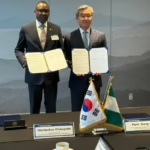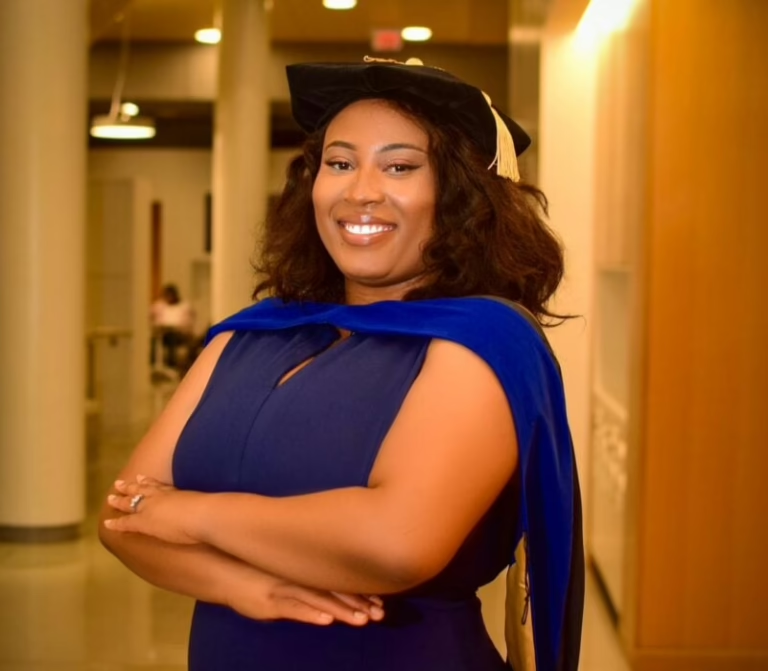Dr. Mercy Fash, a native of Ondo State who was raised in Jos, Plateau State, embodies a narrative of perseverance, ambition, and meaningful contribution. Her journey from Nigeria to becoming a distinguished researcher and educator in the United States highlights her unwavering commitment to empowering students and advancing diversity in science and engineering fields. In this exclusive conversation, Dr. Fash reflects on her path, her dedication to research, and offers inspiring advice to emerging Nigerian scholars.
Q: Could you share how your upbringing in Nigeria influenced your professional journey?
A: Although I hail from Ondo State, my formative years were spent in Jos, Plateau State. Growing up in the northern region exposed me to a rich tapestry of cultures and taught me resilience. These experiences fostered a profound appreciation for education and community values, which have been central to my career. Early on, I recognized the privilege that education represents, fueling my drive to excel and to leverage my knowledge to uplift others around me.
Q: You started your academic career in Nigeria before relocating to the U.S. How did you navigate that transition?
A: I completed my Bachelor of Science in Computer Engineering at Caritas University, Enugu, where my final project involved creating a search engine link hub system to streamline access to research materials. Moving to the United States for graduate studies at North Carolina A&T State University was both demanding and enriching. I earned my Master’s and Ph.D. in Technology Management there. This shift required intense dedication and self-driven learning but also provided me with opportunities to engage in impactful research that continues to shape my professional pursuits.
Q: Your doctoral research has attracted considerable attention. What was the main focus?
A: My dissertation, titled “Development of a Femalized Kinesthetic Learning Model to Increase Architecture, Engineering, and Construction (AEC) Career Interests in African American Middle School Girls,” centers on encouraging young girls to envision themselves in engineering and construction roles.
The AEC sector currently grapples with two major challenges: a shortage of skilled professionals and a significant gender imbalance. To address this, I developed an experiential learning model where students, particularly girls, engage in hands-on activities such as constructing scale models, designing simple structures, and participating in interactive projects. This approach demystifies engineering concepts and makes the field more approachable and enjoyable. By empowering girls to actively create and problem-solve, the model boosts their confidence and interest in pursuing careers in engineering and construction. Ultimately, my aim is to narrow the gender gap and cultivate a diverse new generation of innovators who will shape tomorrow’s built environment.
Q: Besides your research, you have been deeply involved in teaching and mentorship. How many students have you guided?
A: Throughout my career, I have had the privilege of mentoring and instructing over 250 students across engineering, technology, and science disciplines. Many of these students have advanced into various professional sectors, presented their work at national forums, and earned prestigious awards at institutional, state, and national levels. Witnessing their growth and achievements remains one of the most fulfilling aspects of my work.
Q: Which accolades hold special significance for you?
A: I cherish all the recognitions I have received, but the Graduate Rising Scholar Award, the Women in Science and Technology Service Award (2022), and the Outstanding Senior Graduate Teaching Assistant Award (2024) are particularly meaningful. These honors represent more than personal milestones; they reflect the collective brilliance, perseverance, and dedication of the students I have mentored, as well as the collaborative efforts of my colleagues and mentors. Each award serves as a reminder that success is a shared journey, built on community support and mutual upliftment.
Q: What advice would you offer to young Nigerians aspiring to emulate your path?
My message is straightforward yet profound: envision your goals boldly, commit to hard work, and maintain unwavering hope. Every path has obstacles, but resilience, focus, and faith are the keys to overcoming them. Education is a transformative force-not only for individuals but for families, communities, and entire nations. To Nigerian youth, especially young women, I encourage you to see yourselves as future leaders in science, technology, engineering, and related fields. The world eagerly awaits your creativity, innovations, and leadership.


















